Land Rover Defender 130 2024 long-term test
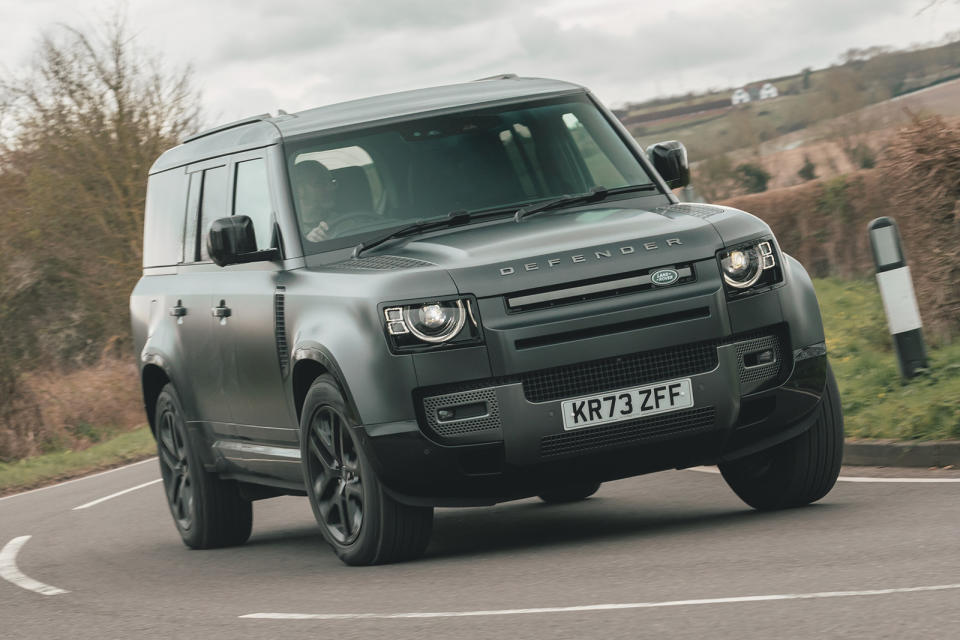
Why we’re running it: Can an extra-long, diesel 4x4 justify a place in daily motoring life in 2024?
Month 1 - Specs
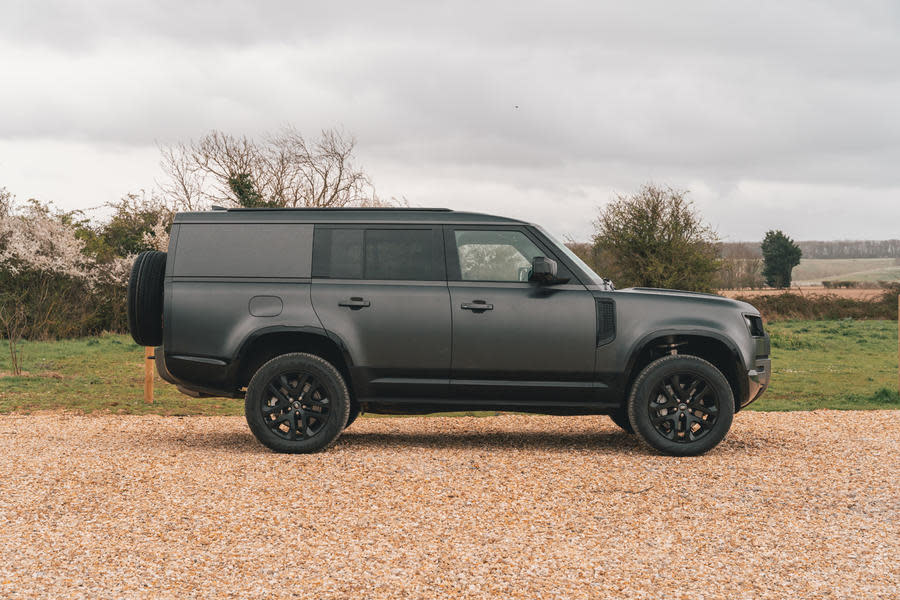
Life with a Land Rover Defender 130: Month 1
Welcoming the Defender 130 to the fleet - 5 June 2024
No sooner had I written that the Ford Ranger Raptor had left Autocar's long-term fleet (to join Steve Cropley's personal fleet, and fair play to him), a similarly large vehicle has arrived to replace it.
It's a Land Rover Defender 130, the longest variant yet of JLR's most rugged 4x4, the car that represented the final peg of a "three-legged stool" when it was launched in 2020, alongside the Discovery and Range Rover. (And given there are multiples of Discovery and Range Rover, I still wonder if there's room for more than one Defender type.)
The 130 lives on the same 3022mm wheelbase as the Defender 110 but has had 340mm added behind the back axle, with a slight lower-body lift back there at the same time to reduce compromise to the car's departure angle.
The Defender was a pretty big car already, and now it's a really big one, at 5099mm long without a spare wheel and 5358mm long with it, as here. Such is the space offered that it's the only Defender variant that can be optioned with a third row of seats, although in that form it can't also be specified with the jump seat in the front, because nine seats are too many for a passenger car.
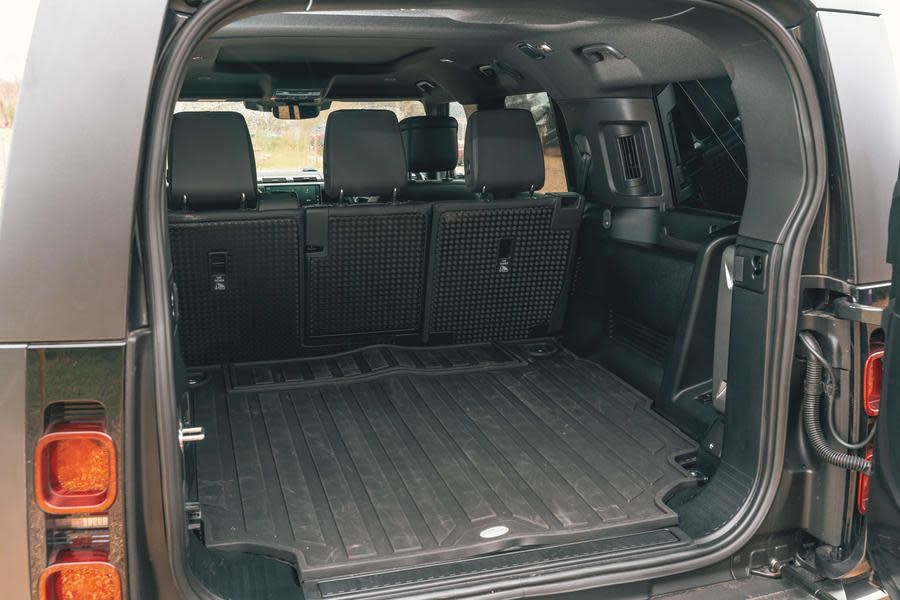
The last time a Defender joined Autocar's long-term fleet, a very pleasant 90, I had the pleasure of working through the configurator and picking the choice options: steel wheels, blue paint, white root, chunky tyres.
It's one of life's simple pleasures (I can recommend the Indian motorcycle configurator as my current deadline dodging obsession). But then somebody else ended up running that Defender.
This time around, it's different: I'm looking after the car, but it arrived pre-specced. The 130 has come to us in Outbound trim, with a 3.0-litre six-cylinder twin-turbo mild-hybrid diesel making 296bhp.
(This D300 was registered a few months ago; now this trim comes with a minimum D350 diesel.) As you might expect, given the name, the Outbound is one of the more lifestyley variants of the Defender.
If you want to get deeply involved in the model range, it has the basic specification of an X-Dynamic SE but with added gloss black wheels, mats and extended rubber flooring inside, a body-coloured exterior panel and a powder-coated cross-car beam.
Crucially, the Outbound is avallable only with five seats, rather than eight, to prioritise load bay capacity over passenger carrying.
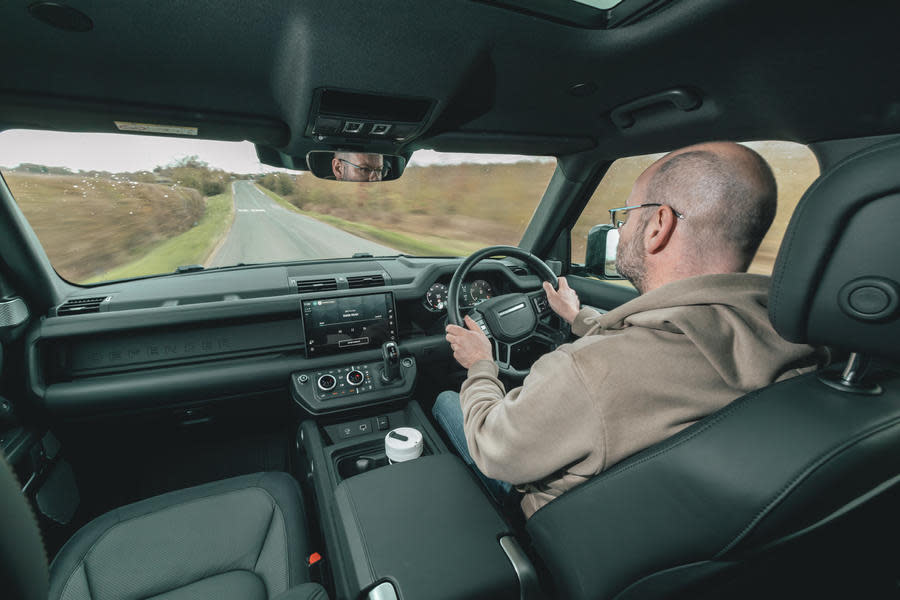
A 130 with all eight seats raised has 400 litres of room behind the third row. The volume on this five-seater is at least 1329 litres, rising to 2516 litres with the back seats folded. I haven't raised a six-a-side football team, so five seats suits me fine, as does the Outbound's easily cleanable rubber flooring, for when I fill the back with hay and the front with mud. Which, with due apologies to colleagues who will borrow the car from me, I will.
There are some options, of course, on top of a £80,390 base price when it was registered. The Defender in standard specification comes very well covered, but this car has a few packs and standalone options as well, most notably upgraded leather seats (£920), an upgrade for the interior (£2275), a towing pack (£1415), an electronic active rear differential (£1020) and more besides, including a tracker with a three-year subscription (£530).
The grey paint adds £1800 and the priciest option is the £4000 satin protective film over that, so that I look like an extra from a Guy Ritchie film. In all, £16,355's worth of kit takes the price to £96,745.
When the new Defender arrived, Commercial versions started at £35,000 but it was just about possible to spend £100,000 on a heavily optioned five-door. Now a Defender Hard Top is £57,420 and you can get pretty close to £140,000. JLR isn't alone here, though. Everything has quickly become more expensive.
Besides, the Defender has found its feet as a luxury car. And the most expensive ones now get a petrol V8. Goody gumdrops.
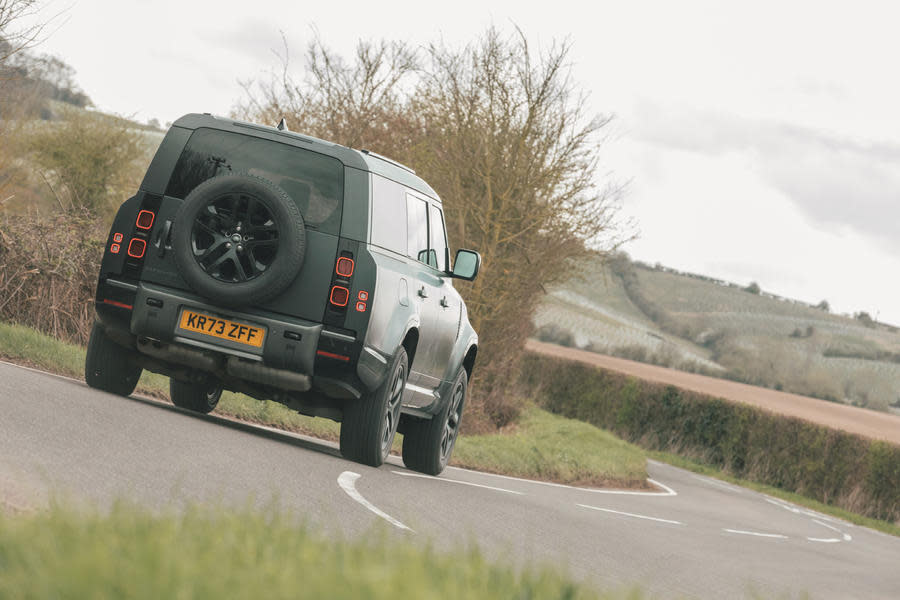
Anyway, back to this one: it's settling into my routine very easily. I will take it off road, or at least onto green lanes, but during its initial miles, I've been using it as a daily wagon.
I know it's big and tall and heavy, but it's such a good motorway car, with great visibility, big comfortable seats, a relaxed driving position and exceptional stability and isolation, even in bad conditions.
And sure, it's a 4x4, but ease off and relax and it can return 40mpg on a long cruise. Not many years ago, a 1.4-litre petrol supermini wouldn't have done that.
Like the Raptor that went before it, it's not the simplest thing to park, but I can be in a Suzuki Swift and I will still head to a quiet car park bay right at the end of a row and then scooch up against the wall or kerb, so it doesn't make much difference.
And there's a really good reversing camera that shows how much room the spare wheel requires, plus the space needed if you want to still open the rear door. There are lots of little niche features like that around the Defender. More on them in the weeks to come.
Second Opinion
We’ve all seen a lot of new Defenders, yet never one as well specced as the 90 we ran a few years ago (well done, Matt). It was memorable and is still missed; a bigger, more accessible boot was its only real weakness. The 130 takes a sledgehammer (or is that a shipping container?) to that problem, so I’m intrigued to see if it retains the 90’s charm.
Mark Tisshaw
Land Rover Defender 130 D300 Outbound specification
Specs: Price New £80,390 Price as tested £96,745 Options Satin film £4000, Premium Interior Pack £2275, paint £1800, Towing Pack £1415, Driver Assist Pack £1175, head-up display £1080, rear e-diff £1020, leather upgrade £920, Comfort and Convenience Pack £800, matrix headlights £760, tracker £530, Cold Climate Pack £260, laminated UVproof windscreen £220, domestic plug socket £100
Test Data: Engine 3.0-litre twin-turbocharged mild-hybrid diesel Power 296bhp at xxxrpm Torque xxxlb ft at xxxrpm Kerb weight xxxkg Top speed xxxmph 0-62mph 6.4sec Fuel economy 32.4mpg CO2 229g/km Faults None Expenses None
]]>

 Yahoo Autos
Yahoo Autos 